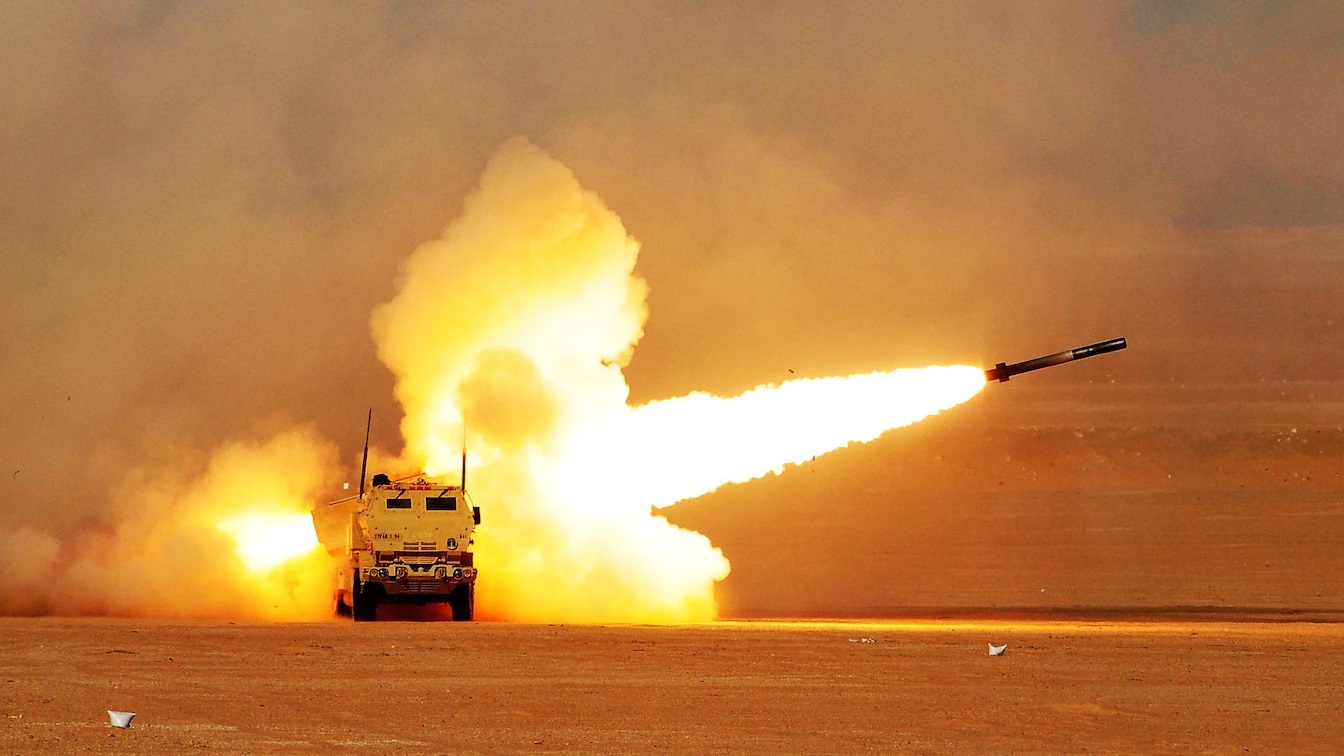Russia’s invasion of Ukraine is Europe’s largest conventional war in decades, and it is the continent’s deadliest conflict since the Second World War. The war’s major battles are reminiscent of some of the most brutal 20th century fights. These include the Siege of Mariupol, the Battle of Severodonetsk, the Kherson Offensive, and now the grueling Battle of Bakhmut.
The battle for the city started in the aftermath of Russia’s Luhansk Offensive, when the Kremlin redeployed forces in Donetsk in an attempt to fully capture Ukraine’s Donbas region. Mirroring the Battle of the Frontiers along France in World War One, Bakhmut has become a dead man’s land.
For five straight months, Russian forces led by the infamous Wagner Group have thrown tens of thousands of their troops at the city, achieving minimal progress in the face of a steep Ukrainian defense. The city itself has been reduced to rubble due to indiscriminate Russian shelling – a repeat of Russian tactics in Mariupol, Aleppo, and Grozny.
The Ukrainian Armed Forces (ZSU) have made use of trenches in their defense, and since neither side has achieved air superiority, each inch taken by Russia has been paid in blood. Forests have become desolate. Defenders are restless and constantly exposed to the fog of war. Bakhmut has done as much to expose the horrors of conventional warfare as Mariupol did before it.
A Matter of Meters
The ZSU has also taken heavy casualties, but currently holds a favorable defensive position. Ukrainians are outnumbered, but they hold a solid posture with experienced troops stationed in the city for years. They are reinforced by Georgian, Polish, and Belarusian volunteers, showing the solidarity of people from nations who have suffered under the boot of the Kremlin.
Ukraine can rotate troops more frequently than the thinly stretched Russian forces across the occupied areas of Ukraine. Wagner-led forces have been reluctant to attack the city head-on, as it is a death trap. Instead they have moved to encircle the city, with only a few meters gained per day.
With both sides taking heavy casualties, the momentum has remained with Kyiv. Being able to form a stable defensive line by advancing in Kharkiv and Kherson, they have denied Moscow a victory for months and have inflicted casualties that the Kremlin cannot continuously replace, as evidenced by mobilization issues this autumn. Nonetheless, Moscow has continually thrown everything it has at this one city, recalling forces originally garrisoned in Kherson to reinforce the Wagner Group.
To bolster the overly stretched Russian forces, Dmitry Prigozhin, Wagner’s CEO, has recruited convicts throughout Russia to use as expendable manpower. Wagner has used human wave tactics, expending their own fresh recruits along with Russian soldiers to achieve their prize.
As the cold sets in, the fields around Bakhmut remain muddy and wet, exposing troops to trench foot. With Ukraine being supplemented by NATO countries, their winter gear will be abundant compared to Russia’s. Further hampering Russian forces, there is little sign their troops are being rotated. It appears instead that once deployed, they remain in the country indefinitely.
So why has the Kremlin thrown everything it has into Bakhmut? The explanation itself is quite complicated.
Bakhmut Is One Man’s Prize
A breakthrough near Bakhmut earlier in the year would have enabled Russia to pressure the logistical hub of Kramatorsk. With Ukraine liberating Lyman earlier this fall and crippling the flow of traffic across the Kerch Bridge for several months, they have now hampered Russian supply lines in occupied areas, making the Russian push into Bakhmut meaningless. The only consolation prize now for the Russians is that Bakhmut is the only area where Moscow has advanced since Ukraine launched its counteroffensives.
Bakhmut represents a grand prize for Wagner, especially its founder, Prigozhin. Over the past several months, the oligarch has presented the group as Russia’s only formidable fighting force, in the face of Russian military disasters that were led by the Russian Ministry of Defense. Constant criticism is leveled against Defense Minister Sergei Shoigu by Prigozhin and Chechen warlord Ramzan Kadyrov.
Seeing a chance to seize a top-level position in the aftermath of Putin’s rule, Prigozhin will continue to throw resources into not only Bakhmut, but other cities such as Soledar where Wagner is commanding. This strategy could backfire. Influential Russian bloggers such as Igor Strelkov have said their lines continue to be stretched thin while Ukraine builds up forces in Zaporizhzhia.
Recently there have been massive strikes against Russian supply lines and military bases in the oblast, especially in the strategic city of Melitopol, whose location could make it a gateway for a Ukrainian march on Mariupol or Crimea. It is possible that Kyiv’s general command has ordered its garrison in Bakhmut to hold in order to drain Russian resources as much as possible. This is what they did during battles in Mariupol and Severodonetsk, both of which came at a major price for Moscow, despite Russian victories.
Bakhmut will be remembered as a hell on earth, with the kind of grueling conventional combat not seen between two nations since the Korean War. Both Russia and Ukraine will continue to take heavy casualties.
The battle and the overall war will come down to logistics in the upcoming winter: Whoever can better supply and equip their forces will hold the advantage.
Julian McBride, a former U.S. Marine, is a forensic anthropologist and independent journalist born in New York. He reports and documents the plight of people around the world who are affected by conflicts, rogue geopolitics, and war, and also tells the stories of war victims whose voices are never heard. Julian is the founder and director of the Reflections of War Initiative (ROW), an anthropological NGO which aims to tell the stories of the victims of war through art therapy. As a former Marine, he uses this technique not only to help heal PTSD but also to share people’s stories through art, which conveys “the message of the brutality of war better than most news organizations.

